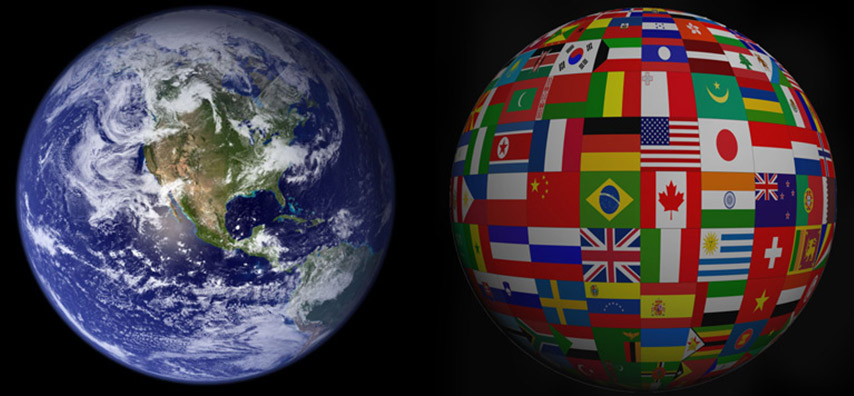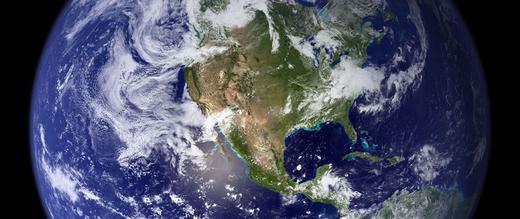The views expressed in our content reflect individual perspectives and do not represent the authoritative views of the Baha'i Faith.
 I think a lot about the practical ways that people can broaden their identities… mostly because I also think about the consequences when too many people position themselves along “us vs. them” dividing lines. But, what does that mean in the real world?
I think a lot about the practical ways that people can broaden their identities… mostly because I also think about the consequences when too many people position themselves along “us vs. them” dividing lines. But, what does that mean in the real world?
In the worst case, strongly-held affiliations that pit people of different races, ethnicities or religions against each other can result in harm or violence to others. History has many examples. Those strongly-held affiliations can also cause an underlying lack of trust and failure to cooperate on common concerns.
I feel a certain sense of urgency about these divisions — and I wonder if we can solve the wide range of global problems that require humanity’s attention if deadly conflict, divisive identity constructs, polarized discourses, and a failure to recognize our common human needs all make collaboration impossible.
The Baha’i writings continually call humanity toward unity. Baha’is try to understand the ramifications of divisive ideologies, and to recognize how to think in more systemic terms — to broaden our identity to a love for humankind as a whole. The “welfare of the part means the welfare of the whole, and the distress of the part brings distress to the whole,” notes Shoghi Effendi, the Faith’s appointed guardian.
 The Baha’i writings liken humanity to the human body. The analogy asserts that an injury to one limb or member affects the health of the whole person and, hence, calls us to think in more holistic ways:
The Baha’i writings liken humanity to the human body. The analogy asserts that an injury to one limb or member affects the health of the whole person and, hence, calls us to think in more holistic ways:
As with the whole, so with the parts; whether a flower or a human body, when the attracting principle is withdrawn from it, the flower or the man dies. It is therefore clear that attraction, harmony, unity and love are the cause of life whereas repulsion, discord, hate and separation bring death. – Abdu’l-Baha, Paris Talks, pp. 139-140.
On the theme of this broader, systems-level thinking, the Baha’i writings add that the most critical issues facing humanity can only be addressed collectively and that norms and institutions need urgent updating to reflect a new era in human history, one that calls for an unparalleled level of global cooperation. At this juncture, then, attachments to traditional divisions in our society will not meet current requirements. Baha’is believe that humanity, and even our planet, is being sacrificed for adherence to doctrines that are past their time. As Shoghi Effendi reiterated in 1938:
If long-cherished ideals and time-honored institutions, if certain social assumptions and religious formulae have ceased to promote the welfare of the generality of mankind, if they no longer minister to the needs of a continually evolving humanity, let them be swept away and relegated to the limbo of obsolescent and forgotten doctrines. Why should these, in a world subject to the immutable law of change and decay, be exempt from the deterioration that must needs overtake every human institution? For legal standards, political and economic theories are solely designed to safeguard the interests of humanity as a whole, and not humanity to be crucified for the preservation of the integrity of any particular law or doctrine. – Baha’u’llah, The World Order of Baha’u’llah, pp. 41-42.
In an article on “Discourse, Identity, and Global Citizenship” published in Peace Review, Michael Karlberg, both a Baha’i and a noted scholar on these topics, also addresses the urgency of setting aside “old cultural patterns:”
We have arrived at a moment of unprecedented social and ecological interdependence on a planetary scale, but we have not yet learned how to live together under these new conditions. The problem is that we are captives of old cultural patterns that are not well-adapted to these new conditions. Among these cultural patterns are the divisive identity constructs referred to earlier. …As long as people understand the world primarily in terms of ‘us’ and ‘them’— whether those categories be racial, national, ideological, or religious — humanity will be unable to realize its common interests and work toward them. – “Discourse, Identity, and Global Citizenship,” Peace Review: A Journal of Social Justice 20.3 (2008): 311-312.
Thought leaders, faith leaders, educators, and all of us individually have a role to play in helping others to broaden their identities and to move beyond “us-vs.-them” thinking. Ultimately, only the growing understanding that diverse identities can all nest under the wider umbrella of a common human—and spiritual—identity will still the fires of hatred and division that often plague our current time.
(Note: This entry was adapted from a published paper by the author entitled “New Perspectives on Identity and Conflict,” in Living in Peace: Insights from World Religions, Chanju Mun and Ronald Green, eds., Blue Pine Books, Honolulu, HI, 2012.)


















Comments
Sign in or create an account
Continue with Facebookor